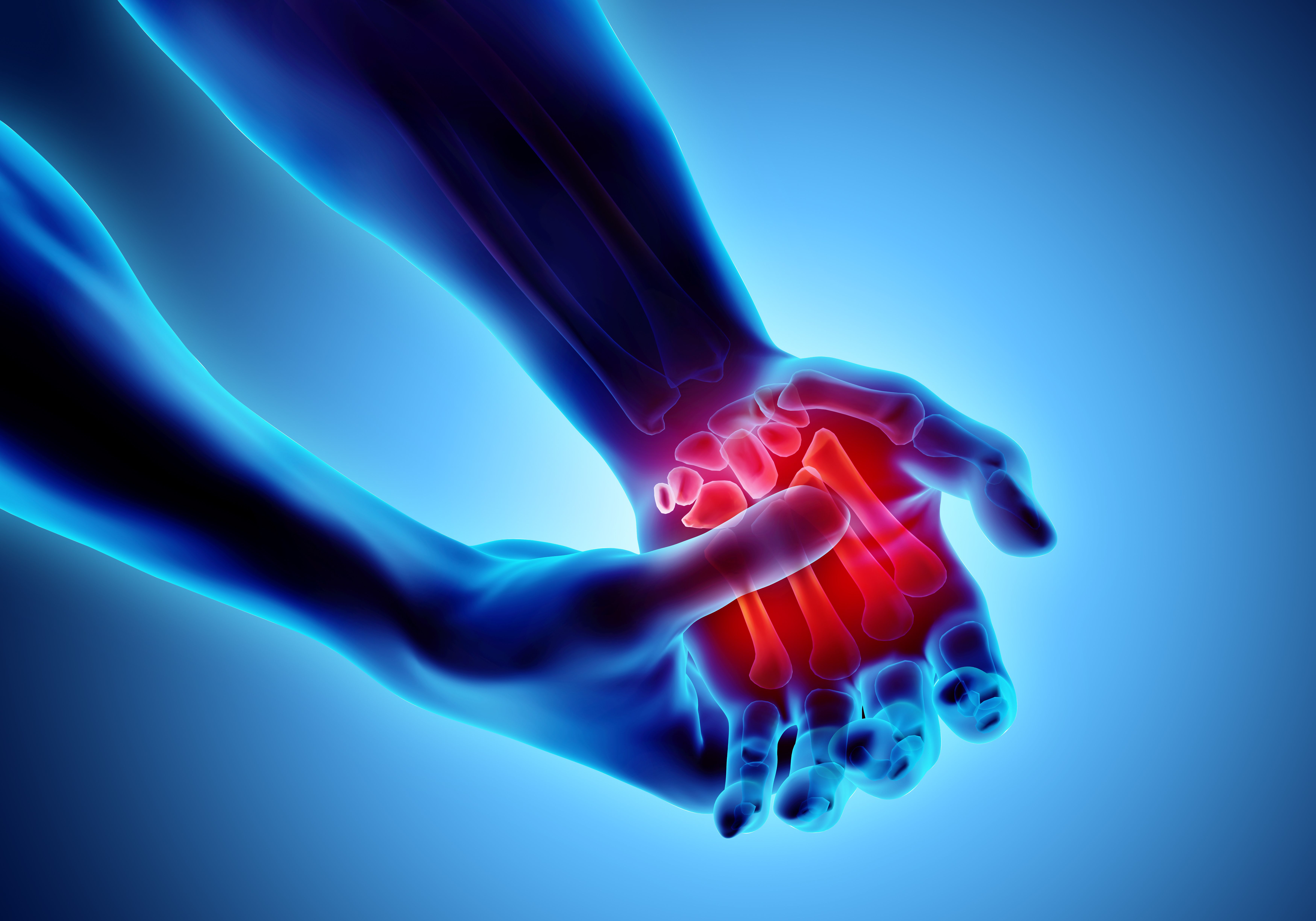- Bone Health
- Immunology
- Hematology
- Respiratory
- Dermatology
- Diabetes
- Gastroenterology
- Neurology
- Oncology
- Ophthalmology
- Rare Disease
- Rheumatology
Tocilizumab Biosimilar CT-P47 Shows Promise for Rheumatoid Arthritis Self-Administration
Tocilizumab biosimilar CT-P47, administered via autoinjector, offers comparable efficacy and a consistent safety profile to reference tocilizumab in patients with rheumatoid arthritis.
Tocilizumab biosimilar CT-P47, administered via autoinjector, offers comparable efficacy and a consistent safety profile to reference tocilizumab in patients with rheumatoid arthritis. | Image Credit: yodiyim - stock.adobe.com

Patients with moderate-to-severe rheumatoid arthritis demonstrated a successfully usable and effective self-administration option of the tocilizumab biosimilar CT-P47, delivered through an autoinjector, further solidifying the role of biosimilars as a critical component in expanding access and managing the economic burden of chronic disease, according to a study published in Expert Review of Clinical Immunology.1
The IL-6 pathway involves various inflammatory diseases and could potentially target an array of clinical conditions, including rheumatoid arthritis. Both infection and other types of inflammation can induce IL-6 production.2 Macrophages produce IL-6 mainly in response to pathogens or inflammation-related damage-associated molecular patterns. IL-6 also performs a protective function by removing infectious agents and healing damaged tissue through the induction of acute phase and immune responses.
Tocilizumab, a humanized monoclonal antibody, binds to membrane-bound and soluble forms of the IL-6 receptor, inhibiting IL-6 mediated signaling.1 Currently, rheumatology treatment guidelines advocate for biosimilars and acknowledge their potential role in reducing the cost burden of biologic therapy.
Based on Q3 2024, tocilizumab biosimilars tocilizumab-bavi (Tofidence; Organon) and tocilizumab-aazg (Tyenne; Fresenius Kabi) launched with wholesale acquisition cost discounts of 16% and 26%, respectively.3 Tocilizumab-aazg's 35% average sales price discount compared with the originator is creating modest growth toward tocilizumab-bavi.
Researchers conducted a single-arm, open-label, multiple-dose phase 3 study (NCT05725434) that evaluated the usability of the CT-P47 autoinjector, along with its efficacy, safety, and immunogenicity among patients with moderate-to-severe rheumatoid arthritis.1 A total of 33 patients received CT-P47, but only 87.9% completed the entire study. Most patients were White women (72.7%) with a median of 4.8 years since their official diagnosis.
The study met its primary end point when scores for all post–Self-Injection Assessment Questionnaire domains at week 2 exceeded 8, except for "self-confidence" (7.11) and "satisfaction with self-injection" (7.98). Overall, the "pain and skin reaction during or after the injection" domain received the highest mean score (9.62). Patients generally felt confident about self-injection prior to their first administration of the study drug. All patients in the usability set successfully followed the self-injection assessment checklist.
Researchers observed a decrease in the mean Disease Activity Score in 28 joints (DAS28) for C-reactive protein (CRP) and erythrocyte sedimentation rate (ESR) scores from baseline to week 12. At week 12, standard deviation changes from baseline measured −2.810 and −3.659, respectively. By week 12, mean values for CRP and ESR reached 1.416 and 8.4, respectively, a reduction from baseline values of 5.487 and 35.7.
No one reported autoinjector malfunctions throughout the study. Researchers observed 22 treatment-emergent adverse events (TEAEs) in 36.4% of patients, and 36.4% of these patients experienced drug-related TEAEs. Only 2 patients had TEAEs that led to study drug discontinuation: 1 participant developed a cerebrovascular disorder and the other developed Grade 1 erythema. Researchers considered both possibly related to the study drug.
Leukopenia, neutropenia, and injection site reactions were the most common TEAEs, each affecting 9.1% of patients. Most TEAEs were Grade 1 or 2 in intensity and resolved during the study. Some patients had Grade 3 TEAEs (12.1%) but no TEAEs were Grade 4 or 5 in intensity, and researchers observed no new safety signals.
This 12 week study has limitations, including the small, predominantly female, and exclusively White cohort that may impact generalizability, even though female prevalence mirrors typical rheumatoid arthritis populations. Selection bias is also possible, as we included only patients comfortable with self-injections. The absence of a placebo control further limits definitive conclusions on CT-P47 SC safety and efficacy. However, long-term phase 3 data for CT-P47 intravenous injection (NCT05489224) demonstrates efficacy and safety comparable with reference tocilizumab. This provides supportive evidence for CT-P47 subcutaneous, though post-marketing surveillance will be essential to confirm its long-term profile.
“Repeated subcutaneous dosing through week 12 was associated with improvements in efficacy parameters and a safety profile consistent with reference tocilizumab,” concluded study authors.
References
- Burmester G, Klimiuk PA, Trefler J, et al. Usability, efficacy, and safety of candidate tocilizumab biosimilar CT-P47 self-administration via auto-injector and pre-filled syringe in patients with rheumatoid arthritis: a single-arm, open-label, phase 3 study. Expert Rev Clin Immunol. 2025;21(4):521-529. doi:10.1080/1744666x.2025.2451215
- Pandolfi F, Franza L, Carusi V, Altamura S, Andriollo G, Nucera E. Interleukin-6 in rheumatoid arthritis. Int J Mol Sci. 2020;21(15):5238. Published July 23, 2020. doi:10.3390/ijms21155238
- Jeremias S. Biosimilars drive cost savings and achieve 53% market share across treatment areas. The Center for Biosimilars®. January 16, 2025. Accessed June 18, 2025. https://www.centerforbiosimilars.com/view/biosimilars-drive-cost-savings-and-achieve-53-market-share-across-treatment-areas
Newsletter
Where clinical, regulatory, and economic perspectives converge—sign up for Center for Biosimilars® emails to get expert insights on emerging treatment paradigms, biosimilar policy, and real-world outcomes that shape patient care.
